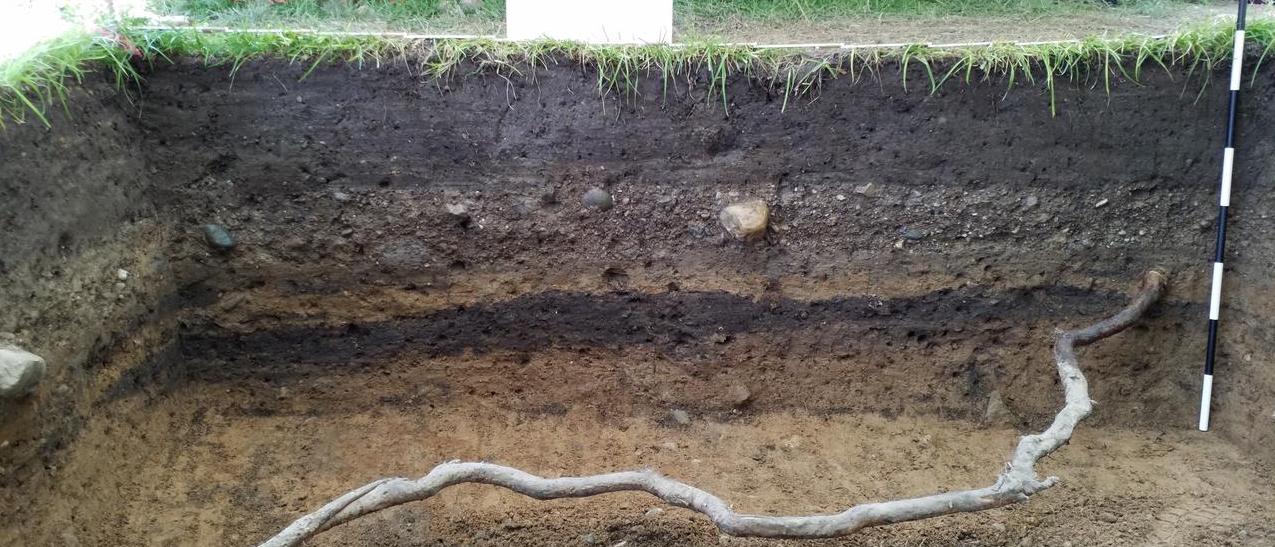If you’re not familiar with this project, Archaeology 101 is a collaborative CHI project between myself and Jeffrey Painter. At the launch, this project will be an interactive website that can be used to introduce elementary and middle school students (and other interested parties) to archaeology! A main component of the Archaeology 101 project will be interactive games created through different JavaScript libraries to teach visitors about different archaeological concepts.
I’ve been focusing on creating an interactive element to teach visitors about stratigraphy. Currently, the draft of text on the website introducing the concept of stratigraphy is:
Another way that archaeologists tell time is through the principle of stratigraphy. The main idea behind stratigraphy is that older things will be buried below more recent things, making it possible for archaeologists to say generally that some types of objects or sites came before or after others.
Think about your dirty clothes basket at home. On Monday night, you put your dirty clothes into the hamper. Then on Tuesday, you again throw your dirty clothes into the basket. By Friday, you have a basket full of clothes piled on top of each other. If you dug through this basket to find something, your clothes from Monday would be on the very bottom, Tuesday’s clothes would be on top of those, and Friday’s clothes would be on top. Stratigraphy works in the same way. If you build a new house on top of the ruins of another, then you know that the ruins on bottom are older than the new house being built.

For the interactive element to allow visitors to test their understanding of this concept, we have created a stratigraphic profile, like the above image, it shows the wall of a square hole in the ground, aka the flat surface where you can see different layers of buried soil and artifacts.

Instructions for the game will ask the visitors to drag and sort images of the artifacts seen in the overall stratigraphy drawing in order from youngest at the top, to oldest at the bottom. This interactive element is being built using the sortable function of JqueryUI.
Based on feedback from Jeff’s niece (stay tuned for a blog about her other feedback tomorrow), there are a few changes I want to make to this exercise. First, she requested that the different layers and artifact be in color instead of black and white, that way it looks similar to the example image we use. We have also decided on how to show the correct answer to the game, we are now going to build a pop-up modal that you can click on to reveal the answer. Keep a look out for our launch post in May to see the final version!